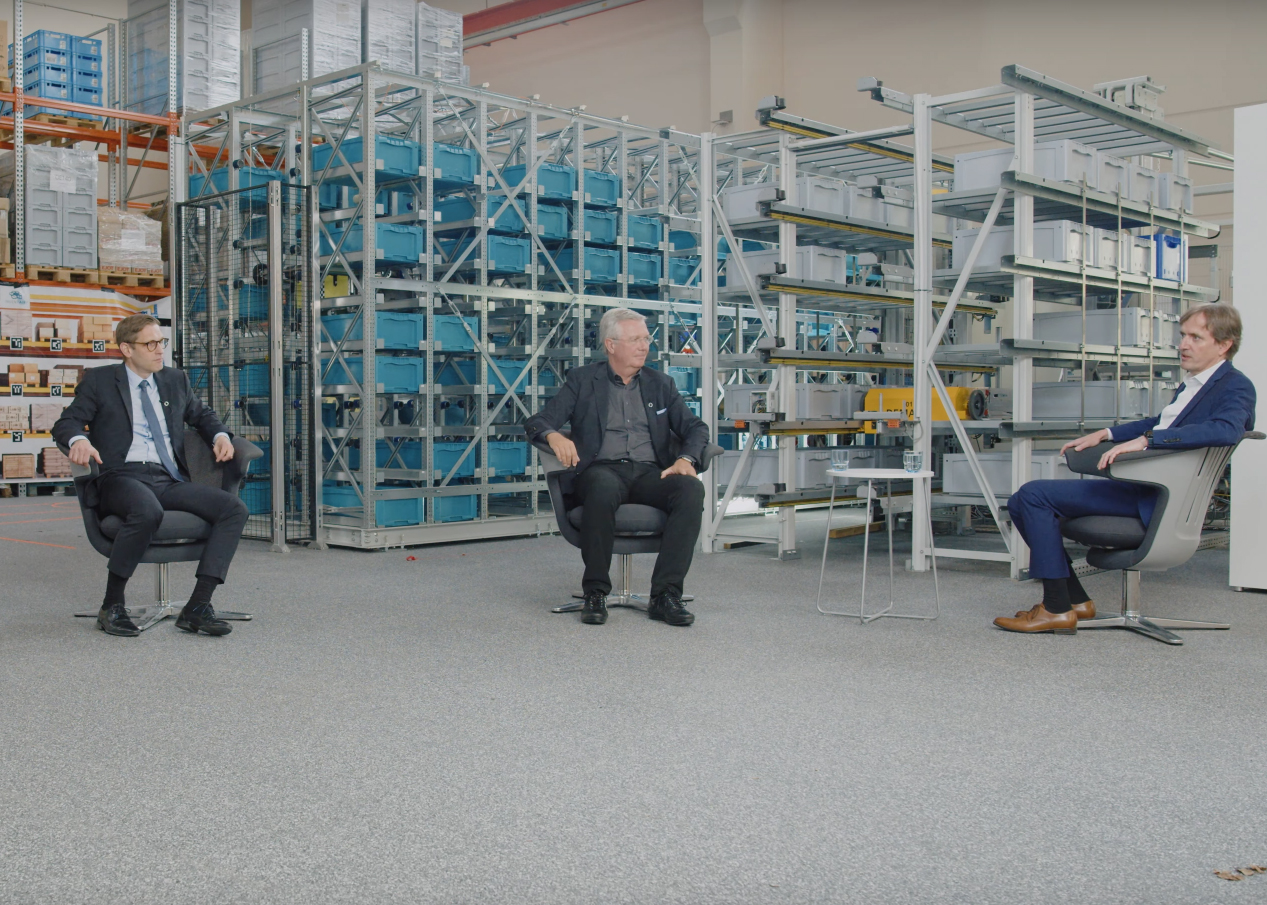Open Source and Open Ideation are to take logistics in Europe to the next level

Open instead of proprietary, share instead of control, together instead of alone: the “Silicon Economy” is currently shaping the discourse in logistics with its idea of an open and federal platform economy in which artificial intelligence will take over the disposition, control and management of logistical flows and with that a very essential part of this world’s movement – the Professors Michael ten Hompel, Michael Henke and Boris Otto having a conversation.
Professor ten Hompel, you coined the phrase that the digitization of everything and artificial intelligence in everything changes everything for everyone. Is it then also improving?
Michael ten Hompel: by means of artificial intelligence we will be able to find better answers to the essential logistical questions, i.e. how we move things sustainably, in an environmentally friendly way, with as little energy as possible and, at the same time, as efficiently as possible in the halls, but also on roads, in the air and on the water. I am convinced of that – and the current development proves it right.
Does that also apply to the blockchain technology?
Michael Henke: We are just beginning to exploit the potential of this technology in logistics and in supply chain management. Logistics has always connected companies along the supply chain. These companies are economically independent and they do not necessarily trust each other. In large international value added networks, it is not always transparent which companies are exactly participating in which processes.
Does this make digitization mainly a question of trust?
Boris Otto: Trust is the most important key. In Europe, we basically regard data as being the raw material for knowledge. Knowledge, however, is power – and platforms centralize the processing and distribution of data. Therefore, we have to create data spaces in which the physical and digital worlds form a de facto unit. This way, we can prevent concentration effects from occurring that have a monopolizing effect which in turn blocks innovation. The International Data Space and the European cloud represented by the GAIA-X initiative are the most important approaches for the digital Single European Market. Here, logistics is one of the first and most natural applications for this because it connects things.
For this to succeed, new forms of collaboration are required...
Michael ten Hompel: ... for no single company, at least from Europe, will succeed in fully implementing this new world on its own. The complexity of what is coming up is too big. In Europe, we have to tackle this together. We need to join forces in research and innovation to the effect that we pursue interdisciplinary innovation together. That will only succeed if we design that basis “open source” and define open innovation as design paradigm.
Are the companies prepared for that?
Michael ten Hompel: Many companies are still stuck with the mindset that they need to design their value added and production processes more efficient – in particular, in times of crises such as Covid. But we all need to change our way of thinking: the value added of the future is a digital one and tomorrow’s business models are different from today’s. With the Silicon Economy, the International Data Spaces and Gaia-X we laid the foundation for this new way of thinking.
Michael Henke: Within the context of our Silicon Economy projects, we already triggered off very successful cooperations with competitors. This is a must – particularly in Europe – in order to survive in international competition.
Boris Otto: Open source strategies can not only take one company or one sector, but the entire industry to the next level of innovation – because together we are stronger and can use the power of many.
ABOUT THE CONVERSATION PARTNERS
Prof. Dr. Dr. h. c. Michael ten Hompel is Managing Director of Fraunhofer IML and holds the Chair of Materials Handling and Warehousing (FLW) at TU Dortmund University. He coined the term of “Silicon Economy”. The initiative is funded by the Federal Ministry of Transport and Digital Infrastructure. Prof. Dr. Michael Henke is Director of Fraunhofer IML, holds the Chair of Enterprise Logistics (LFO) at TU Dortmund University and is responsible for the Blockchain Europe innovation project of the Silicon Economy. Prof. Dr. Boris Otto is Managing Director of Fraunhofer ISST and holds the Chair of Supply Net Order Management at TU Dortmund University. Boris Otto and Michael ten Hompel are both members of the International Data Spaces Association Board, in which Boris Otto is vice-chairman.
 Fraunhofer Institute for Material Flow and Logistics IML
Fraunhofer Institute for Material Flow and Logistics IML